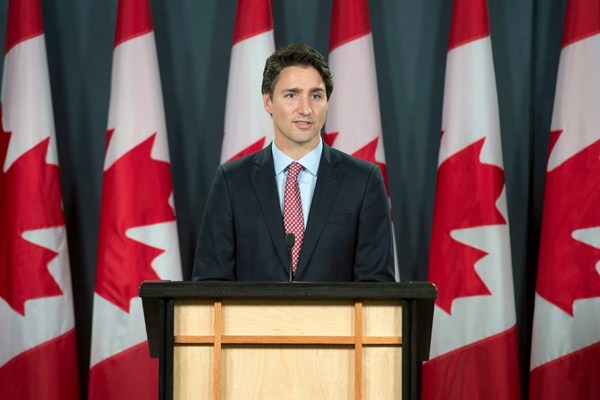In a surprise last week, Canada’s Liberal Party won an overall majority in the federal election, gaining a clear mandate to form a new government led by party leader Justin Trudeau, the new prime minister-designate. Voters’ predominant concerns were the economy and moving on politically from Conservative Prime Minister Stephen Harper—not national security or foreign policy. However, Trudeau, Harper and the New Democratic Party’s Thomas Mulcair still clashed on a number of issues throughout the campaign related to Canada’s national and international security policies, including how to tackle terrorism, the refugee crisis and drug policy. Will Trudeau now follow through on his campaign promises?
Overall, a change in the Canadian government’s political discourse is expected, in particular a departure from the fear-mongering narrative often deployed by Harper’s government. The Liberal Party ran what it described as an optimistic, ambitious and hopeful campaign based on “positive politics” promising “real change.” A number of campaign pledges suggest what the new Liberal government’s approach to other key issues will be.
Trudeau’s decision to pull Canada’s fighter jets from the U.S.-led coalition against the self-proclaimed Islamic State in Iraq and Syria and focus on humanitarian support instead has already been well-covered. Removing half a dozen CF-18 Hornets is unlikely to have a debilitating effect on operations against the Islamic State, but it may denote an important rebalancing toward the more “compassionate and constructive approach” Trudeau has advocated.

